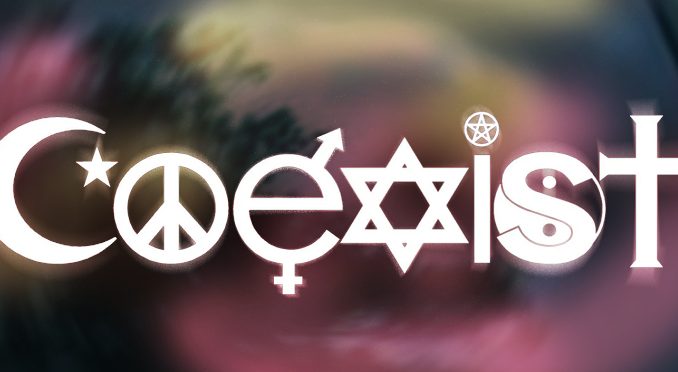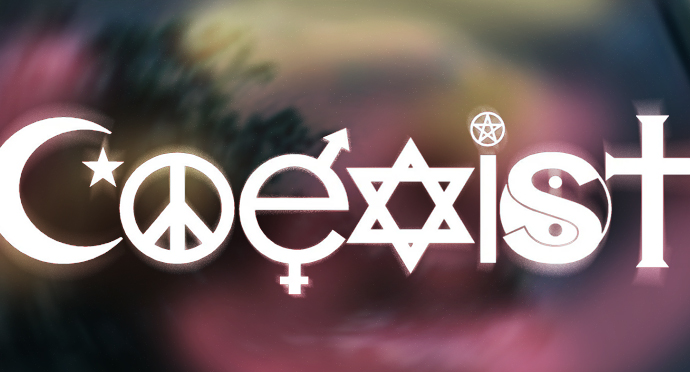
Way back in olden times, when I was still a professor of theology, one of the most ubiquitous attitudes amongst the students was that it does not matter which religion one practiced since “all religions are really saying the same thing in their essence”.
Indeed, in this view, it does not even matter if one practices a religion at all since it is possible to be a “good person” and to be “spiritual” without any religious affiliation. Furthermore, such views are expressed with extreme confidence, as if there is no need to offer arguments for them since their reasonableness is beyond dispute.
I will forgo a lengthy critique of these views since their many flaws defy easy encapsulation. Suffice it to say that ignored in all of this is the fact that the notion that “all religions are essentially the same” is itself, as we see in a variety of new ersatz spiritualities, a highly particular and disputable, theological claim about the alleged reality of a universally shared “inner religious experience” that is pre-linguistic and ineffable.
The pervasive fog of religious relativism
Whenever a student would raise this relativist view, rather than attempt to dispute the claim directly, I would ask them to explain to me—since they seem to be so knowledgeable about the nature of “religion”—the basic beliefs of various religions. And of course, they could not do so. Invariably, they would deflect the query by insinuating that there is no need to know what the various religions teach since such teachings are mere window dressing on the deeper truths of religious experience. But, when pressed further to explain what they mean by “religious experience,” they were equally vague and could only offer up shallow philosophical and mostly therapeutic understandings that reduced to simple nostrums such as “being true to yourself.”
My conclusion was that those who hold such opinions view the various religions as “equal” in the sense that they are all equally trivial and not really worth studying in a granular way. And the assertion of their putative triviality is grounded in an antecedent commitment to a different set of “dogmas” concerning the moral and intellectual superiority of a radical egalitarianism in all matters of religion. There is also an antecedent and undeveloped assumption as to what a “religion” is in the first place, which is, of course, no easy thing to define.
What one soon discovers in such classroom conversations is that this relativistic view of religion cannot be countered with any kind of argumentation, such as above, no matter how cogent such argumentation might be. This is because the faulty view is expressive of a generalized cultural ethos. It is like an invasive fog in a bad horror novel, the fruit of centuries of marginalization and then compartmentalization of Christianity in particular, but also of all other religions as well. This, in turn, led to the Church becoming a rather extrinsic existential reality—just one lifestyle accessory among many.
So, just as there is a sense in which all such accessories are interchangeable or expendable based on your current mood, so too with the Church.
Even among those who remain in the Church, a pervasive relativism persists. Many folks, in short, do not remain Catholic because they actually believe it to be the one true religion. Rather, they practice it because it is the religion they were born into (which is a quirk of fate), and therefore believe other religions are equally valid pathways to God. For example, I remember a Catholic friend I had many years ago who was happy his son was marrying a Jewish girl (a lovely young lady, by the way) because then the children would be raised “in a religiously ‘open’ environment” not hemmed in by one tradition.
Christian particularity vs. modern particularism
This last point is important since, in my opinion, it gets to the heart of the problem. To wit, the notion that adherence to a particular religious tradition as true represents a “hemming in” of our religious consciousness.
One of the central intellectual challenges posed to the Church by modernity is the question of the exclusivist particularity of God’s Revelation in Jesus Christ. Modernity has never been at ease with the Christian claim that somehow and someway all salvation comes from Christ and that to be saved one must have a relationship via grace with Christ, whether that be explicitly or implicitly present. The criticism continues with the further claim that such exclusivist notions of salvation, with eternal damnation or eternal bliss on the line, place too heavy an epistemic burden on the historically contingent and conditioned consciousness of ordinary people.
Thus do we see the rise of the two pillars of modernity. First is the globalization of all things, including religion, in the pursuit of an Esperanto language of universally accepted truths. Second, and in the wake of the first, a concomitant dumbing down of the importance of free will as an expression of moral determination, and in an overall epistemology that reduces the mind to a glorified abacus for adjudicating purely mundane and practical matters. Modernity thus reduces us all to nothing more than organic, walking algorithms and seeks to formulate one universal algorithm. Paraphrasing Gandalf: “One Algorithm to rule them all, one Algorithm to find them, one Algorithm to bring them all, and in the darkness, bind them.”
This is the grave danger that lurks within every relativist rendering of religion. It seeks to replace the troublesome irreducibility of the religious particularity of Christianity by replacing it with a new particularism of its own, which, it is alleged, is “more inclusive and tolerant”. This leads to the further assertion that Christianity is inherently intolerant and non-inclusive.
And as we now see Christians across Europe and North America caricatured as the new “blackface” of rank bigotry against those it seeks to marginalize, complete with endless “#me-too” anecdotal testimonies from those who have escaped its clutches and who have now been “liberated” into the new religion of relativist bliss. A baker who will not bake a cake for a “gay wedding”, or The Little Sisters of the Poor who will not put contraceptives and abortifacients in their health plans, or, as in the UK recently, those who even make jokes on social media about protected classes such as cross-dressers, will all find themselves before a magistrate.
If there is an emblem for this new, highly particularistic religion, it is the rainbow flag. That flag has gone way beyond its original meaning of “gay liberation” and has now come to symbolize, and thereby galvanize, a vast array of “liberation” movements for those who have allegedly been oppressed by Western Christian culture. Never mind that it is riddled with internal contradictions, such as homosexual liberationists fighting for the rights of radical Muslims who, if they had their way, would imprison them. Worse, the new rainbow religion is wedded to a version of Marxist and even Nietzschean deconstruction and destruction of the old religions of Transcendence. This alone is what matters, and therefore, as the struggle continues, one must make common cause with all those who represent “non-Westernism” no matter who they are.
The soft totalitarianism of the new religion
Within various forms of religious relativism, there is a not-so-hidden soft totalitarianism that is swiftly moving into “harder” versions with devastating real-life consequences for anyone who dares to openly resist it. What counts as “public” resistance has been expanded to include even those who, for example, will just stand outside of an abortion clinic in the UK with heads silently bowed in prayer. This means that the definition of what counts as “public” has been expanded to include even the private thoughts in your head. What was once the classic example of the limits of free speech–yelling “fire” in a crowded theatre–has now been replaced with silently invoking “Jesus!” in the wrong venue.
The metaphysical underpinnings of this new intolerance of the tolerant are the runaway immanentism of the new religion of religious relativism. The emphasis on a vague and undefined notion of a universally generic sense of “religious experience” rarely rises above the level of the purely immanent. It is, in its essence, reductive to the idiosyncratic productions of the choosing therapeutic self, which is another grand internal contradiction to its alleged universalism.
This reductive immanentism has the further anthropological consequence of evacuating our free will of its constitutive orientation to any order of the transcendent moral good. The classical understanding of freedom as “freedom for the moral good” is now recast as freedom of indifference to any particular moral good; it is also then viewed as a mere “freedom from” any external constraints, morally speaking. This then allows the new religion of endless tolerance to claim the high ground as the great defender of “freedom” against the awful theocratic oppressors.
In this view, “compassion” has come to mean the lifting of moral constraints in the name of baptizing all of our choices as inherently “good,” with the only caveat being that those choices cannot harm others in any way. But the immanentism of the new religion would also say that compassion would never include invoking moral principles grounded in transcendence and the natural law “against” the actions of anyone in the privileged classes of the historically oppressed. Why? Because this would represent an offensive provocation to their “freedom”.
The spirit of anti-Christ
What results is a metaphysically flat-lined anthropology wherein happiness and well-being are now presented—ironically given the alleged revolution at hand—as a cult of material comforts and sensual pleasures as the main goal of life, if not its only goal. This has brought us the marvelously ridiculous spectacle of celebrity activists, treated as oracular conduits of correct thinking, globetrotting around the world in their private luxury jets while eating Wagyu beef, lecturing the rest of us on the evils of our overproduction of carbon dioxide from our gas stoves and our cows’ flatulence.
I am reminded of Dostoevsky’s tale of the Grand Inquisitor, told within the broader novel The Brothers Karamazov. It is recounted by the unbelieving Ivan Karmazov as a diatribe against Jesus, who, in the story, has returned and gone to Seville, Spain, during the Inquisition. Jesus performs some miracles, which get him arrested by the ecclesiastical inquisitors. The Grand Inquisitor informs Jesus that he had expected too much of people, morally speaking, and had placed too heavy a burden upon their limited freedom. However, the Church had remedied his mistakes and “improved” his message by giving to the common people what they truly wanted: bread, authority, and some amount of supernatural spectacle. He goes on to say that it is, in fact, the Devil who has given common persons the tools they need to be happy in this life.
This is the crisis we face in a nutshell. The new religious relativism, with its soft totalitarianism and emphasis upon purely immanent material goals, is the very spirit of anti-Christ. It is a new “religion of humanity” that is actually deeply inhuman. Described by authors as varied as Vladimir Solovoyov, C. S. Lewis, Robert Hugh Benson, and, in our time, the philosopher Daniel Mahoney, it represents nothing short of a direct repudiation of the Christian view of the human person as made in the image of God and whose purpose it is to seek that God.
This is the challenge of our time. But is the Church up to it? Does it have the stomach for it?
Recent trends in the Church do not instill hope. Rather than energize her base–devout Catholics who live in the trenches and who are trying to raise families against this cultural tsunami–the Church of recent years instead seems intent on alienating and demoralizing that base as so many slack-jawed backwardists afraid of “change”.
And the “change” envisioned seems to be closer to the vision of the Grand Inquisitor, where the Church is now recast as the grand dispenser of a compassion that is little more than the denigration of her timeless moral principles as pharisaical curtailments of “conscience”. We hear talk in the Vatican and in various conferences about the need for a “new paradigm” in moral theology that focuses on “complex concrete circumstances” that burden “average people” with moral commandments that seem too heavy for their attenuated freedom to bear. And so the Church must intervene to relieve people of this burden of their freedom and to tell them that “all are welcome” without the need for conversion and at least an attempt at repentance.
The T-shirt worn by an individual inside St. Peter’s Basilica the other day at the LGBTQ Jubilee event said it all better than my words here could: “F**K the rules.”
We must do better than this; we must do better than this. There is too much at stake to fail. It’s time to push away the fog and clearly proclaim the Catholic Faith.
If you value the news and views Catholic World Report provides, please consider donating to support our efforts. Your contribution will help us continue to make CWR available to all readers worldwide for free, without a subscription. Thank you for your generosity!
Click here for more information on donating to CWR. Click here to sign up for our newsletter.














